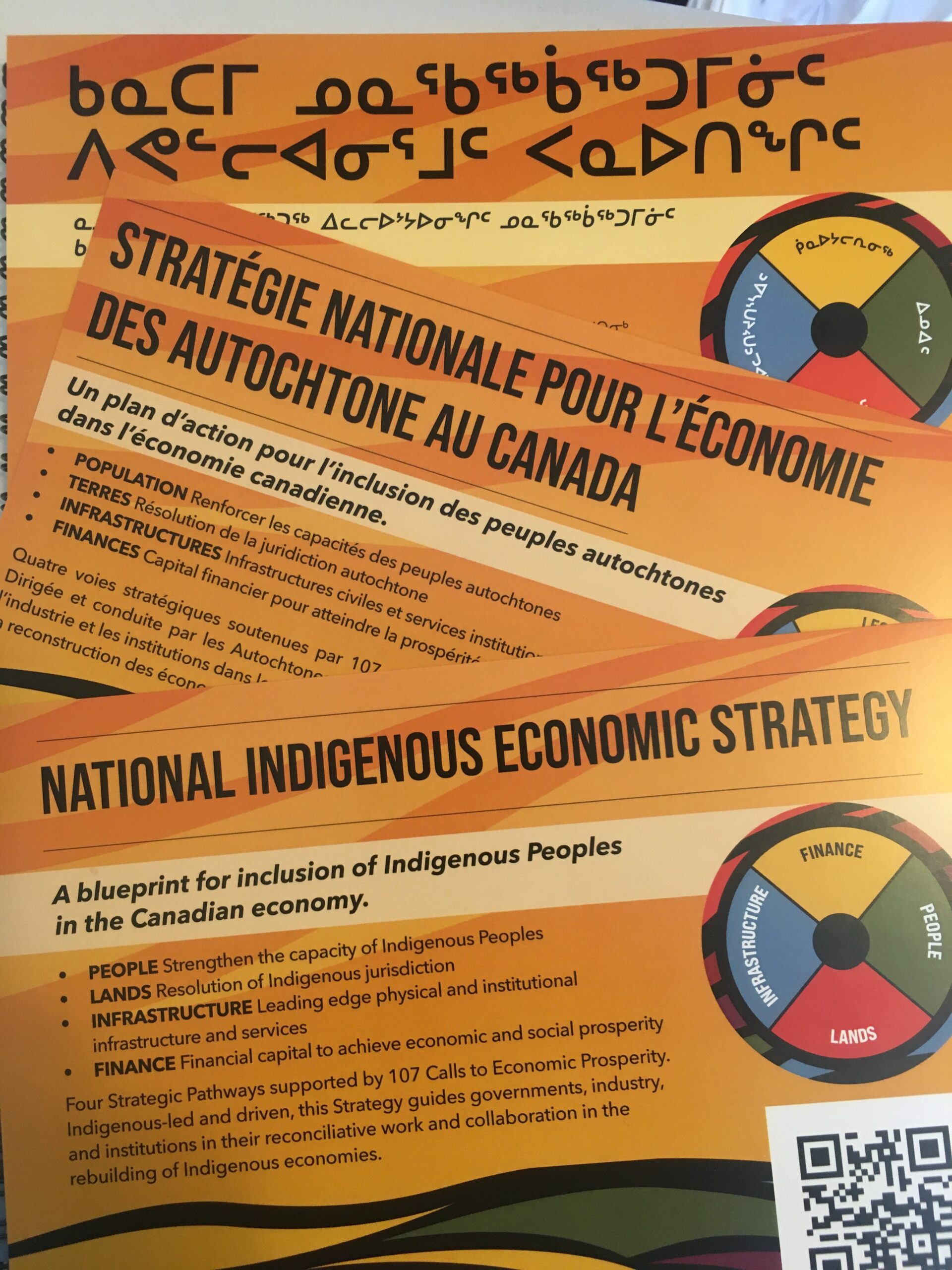June 20, 2022
A new National Indigenous Economic Strategy (Cardozo)
By

New Indigenous Economic Strategy builds on TRC report
By ANDREW CARDOZO JUNE 13, 2022
Last week, a group of Indigenous economic and business groups released their plan for a National Indigenous Economic Strategy. It builds on the Truth and Reconciliation Commission’s calls to action that addressed the economy, jobs and training.
Progressive Senator Brian Francis, who was appointed to Senate in 2018, is the first person of Mi’kmaq descent from Prince Edward Island to be appointed to the Upper Chamber. ‘It is time for Canada to work with, rather than against, Indigenous People. True and lasting reconciliation is not possible when so many of us are poor and lack access to basic necessities.’ Photograph courtesy of Senator Brian Francis
OTTAWA—Indigenous history is complicated. There is much to be proud of, despite government policies that have been systemically discriminatory, long before Confederation.
Last week, a group of Indigenous economic and business groups released their plan for a National Indigenous Economic Strategy. It builds on the Truth and Reconciliation Commission’s calls to action that addressed the economy, jobs and training. It also builds on the emergence of a new generation of Indigenous leaders who work on private and non-profit boards, a highly skilled workforce, the rapidly increasing number of university and college-qualified young people, and a growing access to social capital, as well as interconnections with all Canadians.
The strategy is based on four pathways: people, land, infrastructure, and financing. And the issues are interconnected. For example, the people who are the entrepreneurs need fairer access to financing.
At the report’s launch last week, Tabatha Bull, head of the Canadian Aboriginal Business Council, noted that, “Indigenous peoples are the youngest and fastest-growing demographic in Canada, and they are creating businesses at nine times the rate of the average non-Indigenous Canadian.” Nine times. She further noted that, “there are close to 60,000 Indigenous businesses across Canada, in every sector and size and every province and territory.” That is newsworthy.
But the future always exists in the context of the past. A lot of the inequality that Indigenous peoples face today is due to specific exclusionary polices that governments put in place. Gov. Gen. Mary Simon was criticized for not speaking French fluently, but the fact is, government policy specifically kept her from learning French when she was growing up in northern Quebec.
Indian agents counselled young people away from too much education, so much so that First Nations people who received post secondary education lost their Indian status.
Indigenous Services Minister Patty Hajdu put it bluntly when she announced the government’s support for this report: “Systemic racism is baked into the DNA of this country.” She pointed to past policies and noted that racism is expensive. First, we lose the contribution of people who are excluded, and second, we have to pay out settlements down the road. Time to learn from bad policies of the past.
If you think of economic success as a race, the majority community begins at the starting line, but Indigenous people have always had to begin several yards behind the starting line, maybe with their hands tied behind their backs and several of them not even allowed to run. And some wonder why they just can’t forget the past and start anew.
But, despite history, an Indigenous economic strategy does have some growing advantages. For example, Indigenous people are the fastest-growing group in Canadian society and have the largest cohort of young people. In addition, we are seeing a new and fast-growing interest in entrepreneurship. There is also a long-awaited, but growing interest on the part of governments and the population at large to address the many aspects of reconciliation and to make things better. This is great. This is a perfect storm in the best sense of the term, which makes this report so timely.
“It is time for Canada to work with, rather than against, Indigenous People. True and lasting reconciliation is not possible when so many of us are poor and lack access to basic necessities,” said Progressive Senator Brian Francis, himself a former chief of the Abegweit Mi’kmaq Nation on Prince Edward Island.
He added that “the 107 Calls to Economic Prosperity outlined in the National Indigenous Economic Strategy provide governments, corporations, institutions and others with a clear guide to building inclusive growth for and with Indigenous communities. Their prompt implementation is critical and will aid tremendously in building trust and improving relationships.”
The report also pointed to the recognition by the courts of the increased ability of Indigenous Peoples to manage their lands, noting their inherent role as stewards of the land, water, air and natural resources, which is enshrined in law.
One of the important players in this report is Shannin Metatawabin, CEO at the National Aboriginal Capital Corporation Association (the Indigenous credit union). He pointed to the emerging leadership in the Indigenous economic space dominated by highly qualified women. In addition to Bull, they include Dawn Madahbee Leach, chair of the National Indigenous Economic Development Board; Victoria LaBillois, owner of Wejipeg Excavation in Quebec; and Sandra Sutter, manager of Aboriginal Partnerships for PTW Energy and CGT Industrial.
Metatawabin celebrated that these women represent “the re-emergence of the Indigenous matriarchy.” Indigenous society is coming full circle.
Andrew Cardozo is president of the Pearson Centre.
The Hill Times



